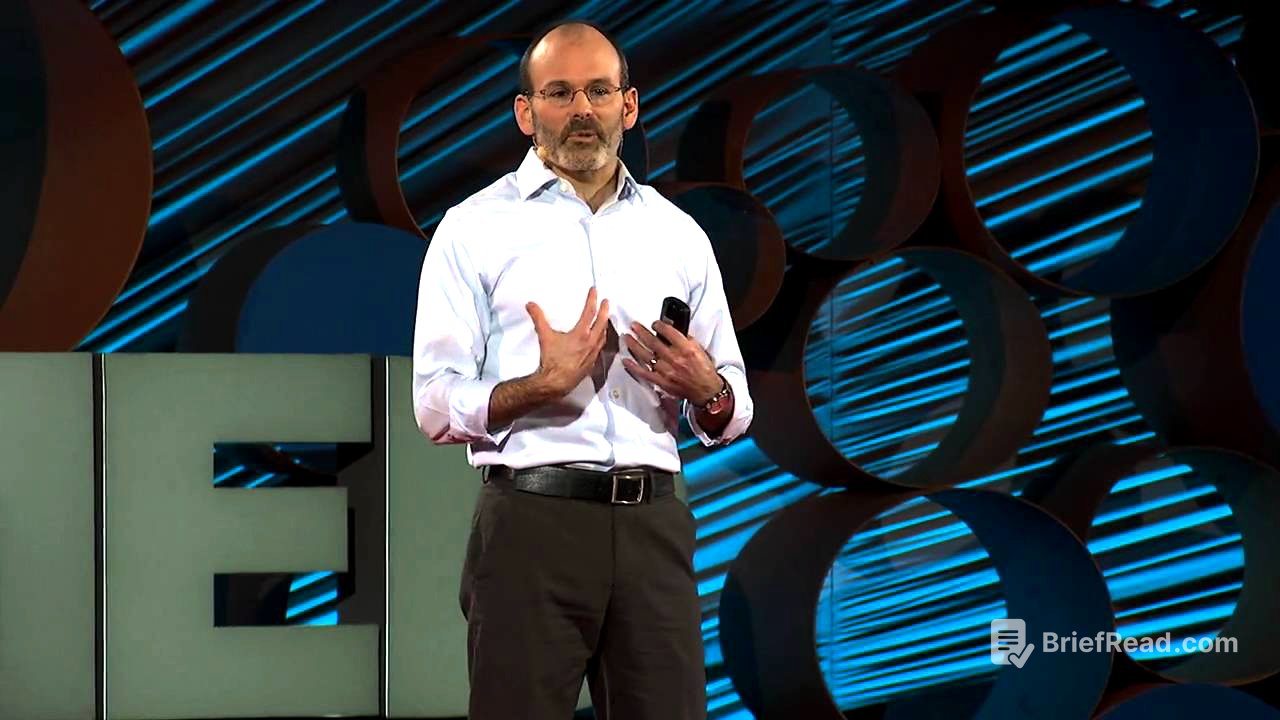TLDR;
This TED Talk explores the science behind why it's so hard to pay attention and how our brains are wired for reward-based learning, which often leads to unhealthy habits. It introduces mindfulness as a tool to break free from these habit loops by fostering curiosity about our experiences, leading to disenchantment with harmful behaviors and ultimately, a natural letting go. Key points include understanding the trigger-behavior-reward cycle, the role of the prefrontal cortex, and the effectiveness of mindfulness training in quitting addictive behaviors.
- Understanding reward-based learning and habit loops.
- Mindfulness as a tool to foster curiosity and disenchantment.
- The role of the prefrontal cortex and the default mode network in behavior change.
- Practical application of mindfulness in breaking unhealthy habits.
The Challenge of Paying Attention [0:12]
The speaker begins by recounting his initial struggles with meditation, where the simple instruction to focus on the breath proved surprisingly difficult. He highlights that even when we try to concentrate, our minds often wander, with about half of us drifting into daydreams or feeling the urge to check distractions like Twitter. This difficulty in paying attention is attributed to our brains being wired for reward-based learning, a deeply ingrained process essential for survival.
Reward-Based Learning and Habit Formation [0:43]
The reward-based learning process is explained through the example of food consumption: seeing food triggers the brain to anticipate calories and survival, eating the food leads to a pleasurable taste, and the brain remembers the experience to repeat it. This trigger-behavior-reward cycle extends beyond basic survival, as our brains learn to associate certain behaviors with feeling better, such as eating comfort food when sad. This process can lead to the formation of habits, where emotional signals trigger urges to engage in those behaviors, like smoking when stressed.
Mindfulness as a Tool for Change [2:53]
The speaker proposes using mindfulness to tap into our natural reward-based learning process with a twist: cultivating curiosity about our momentary experiences. In a study on mindfulness training for smokers, participants were encouraged to be curious about the experience of smoking. This led to discoveries like smoking tasting like "stinky cheese and chemicals," shifting their understanding from intellectual knowledge to visceral wisdom. This disenchantment with the behavior helps break the spell of the habit.
The Role of the Brain and Disenchantment [4:42]
The prefrontal cortex, responsible for cognitive control, often struggles to override ingrained habits, especially when stressed. Disenchantment plays a crucial role because understanding what we truly get from our habits at a deeper level reduces the need to force or restrain ourselves. Mindfulness involves clearly seeing the results of our behaviors, leading to a natural letting go.
Curiosity and Letting Go [6:00]
Mindfulness is about being interested in our bodily and mental experiences from moment to moment, supported by curiosity, which is naturally rewarding. Curiosity helps us notice that cravings are made up of manageable body sensations that come and go. By getting curious, we step out of fear-based, reactive habit patterns and into a state of being, becoming inner scientists observing data points.
Mindfulness in Practice and Application [7:18]
Studies have shown that mindfulness training is more effective than traditional therapy in helping people quit smoking. Brain scans of experienced meditators reveal that the posterior cingulate cortex, a region of the default mode network, quiets down when we let go and become curiously aware. Mindfulness training programs are being developed as apps and online resources to target these mechanisms, using technology to help people break free from unhealthy habits. The speaker encourages the audience to apply this approach to everyday urges, such as checking email or responding to texts while driving, by being curiously aware of their body and mind in the moment.
